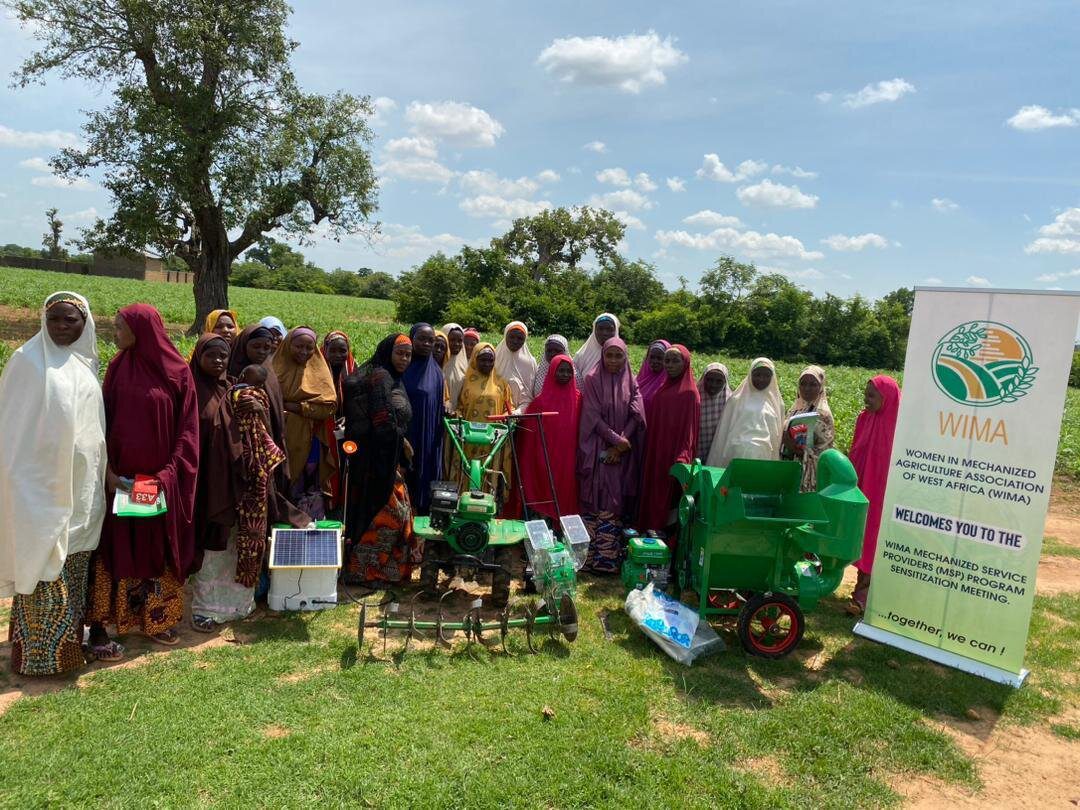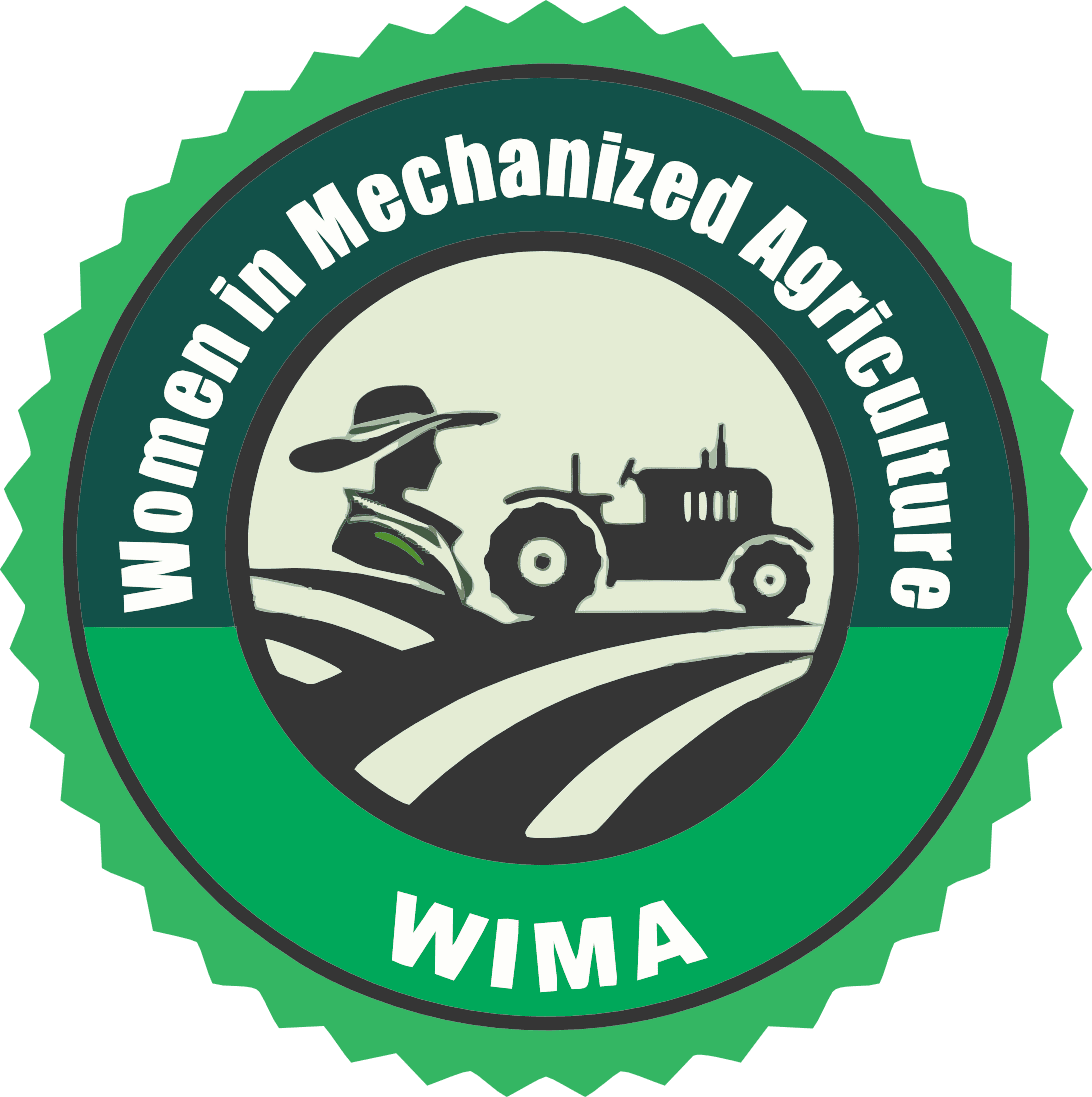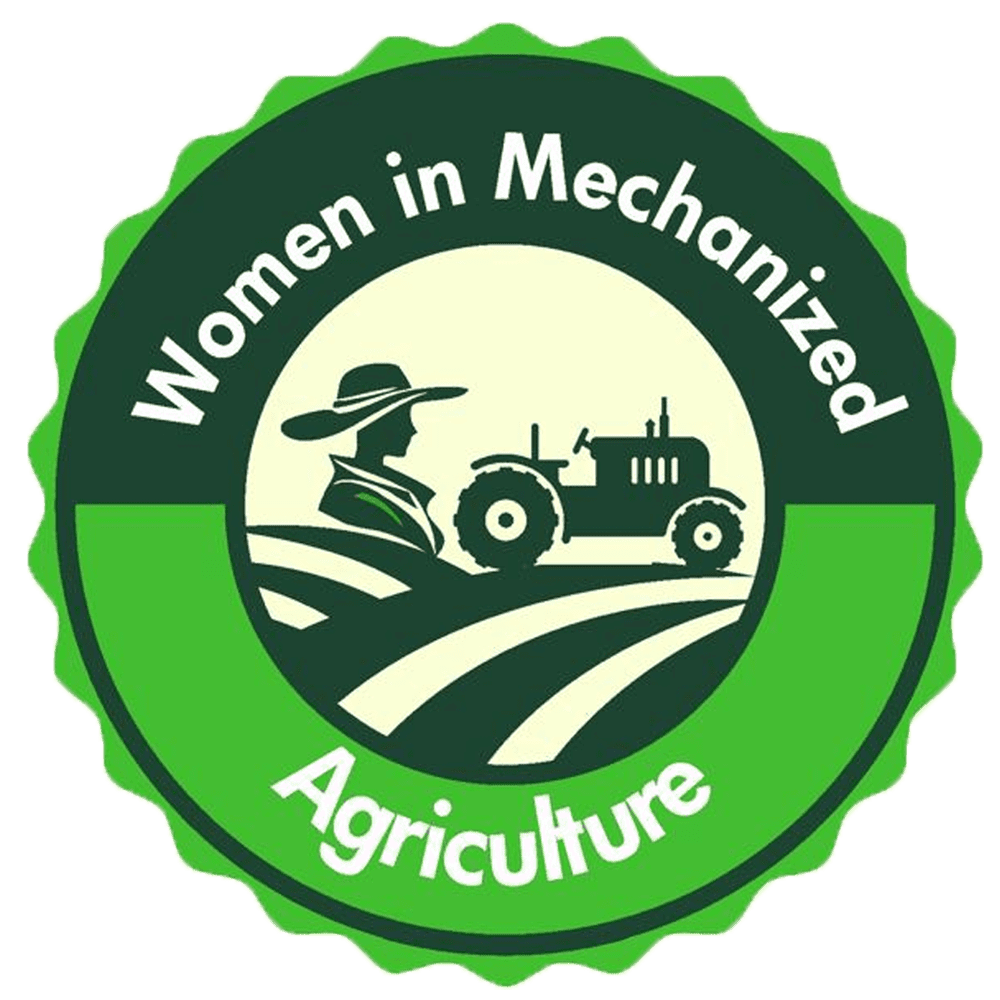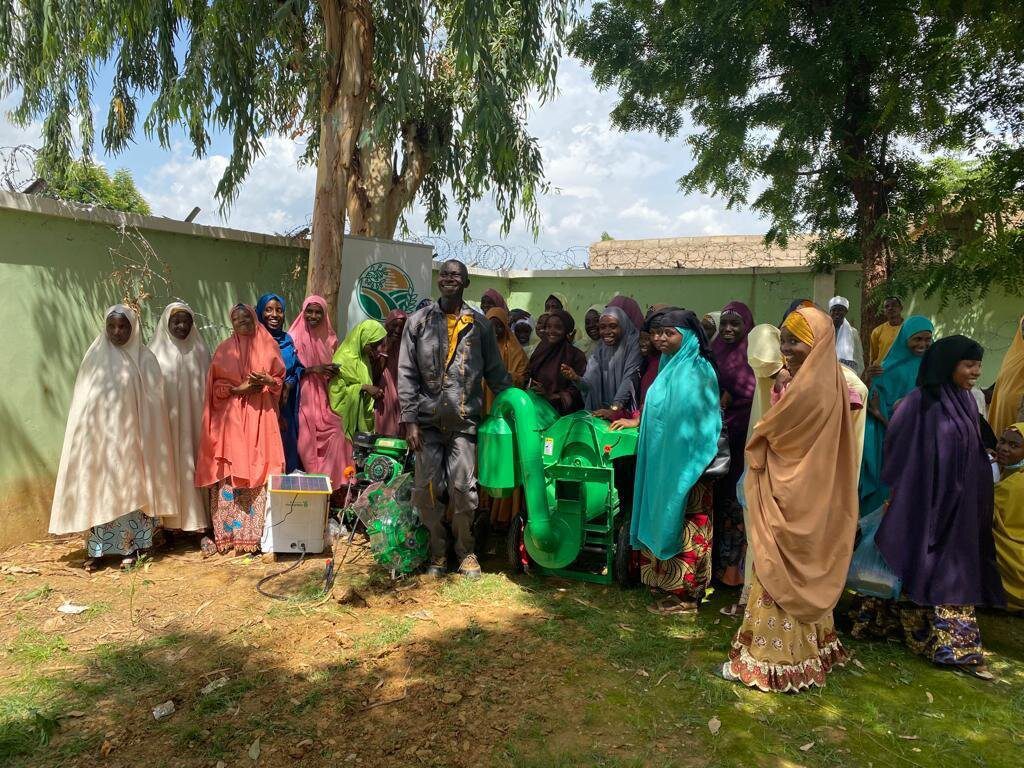Long-Term Vision:
The project aims to create a self-sustaining mechanization ecosystem, empowering women as agricultural entrepreneurs while enhancing Nigeria’s food security and climate resilience. By demonstrating the success of climate-smart mechanization, WIMA seeks to scale the model nationwide, ensuring more women-led farming communities thrive in a modern, sustainable agricultural sector.

Project Summary: Women’s Agricultural Mechanization Expansion Project (WAMEP) – 2024 – 2025 Overview
The Women in Mechanized Agriculture (WIMA), in partnership with the Propcom+ Programme, is implementing the Women’s Agricultural Mechanization Expansion Project (WAMEP) to enhance mechanization access for smallholder women farmers in Nigeria. The project introduces climate-smart mechanization technologies, such as solar-powered irrigation pumps and compressed natural gas (CNG)-powered tillers, to improve productivity, reduce greenhouse gas emissions, and increase income for women farmers.
Project Objectives
- Improve Access to Mechanization Services – Establish centralized mechanization hubs in Kaduna, Kano, Gombe, and Adamawa to provide affordable mechanization tools.
- Empower Women as Mechanization Service Providers (MSPs) – Train 120 women as MSPs to operate and manage mechanization hubs, serving 5,000 smallholder farmers.
- Promote Climate-Smart Technologies – Introduce solar and CNG-powered mechanization tools to reduce reliance on expensive and polluting diesel-powered equipment.
- Enhance Market Access – Develop aggregation hubs where farmers can store and sell produce in bulk, reducing post-harvest losses and improving income.
- Boost Climate Resilience and Sustainability – Support smallholder farmers in adopting low-emission, climate-resilient agricultural practices.
Key Components
- Mechanization Hubs: Establish service centers providing affordable equipment rentals and training for smallholder farmers.
- Training and Capacity Building: Equip 120 women MSPs with skills to operate, maintain, and manage mechanization services.
- Clean Energy Mechanization: Deploy solar-powered irrigation systems and CNG-powered tillers, cutting operational costs by up to 70%.
- Market Linkages & Agro Cargo Transport: Enable farmers to sell produce at premium prices through aggregation hubs with solar-powered mini-trucks.
Expected Impact
- 5,000 smallholder women farmers gain access to mechanization services.
- 990 women trained as Mechanization Service Providers, creating new income opportunities.
- Up to 30% increase in farmer income due to improved productivity and reduced post-harvest losses.
- 40% reduction in greenhouse gas emissions through climate-smart technologies.
15% reduction in post-harvest losses by providing efficient threshing and aggregation services.


